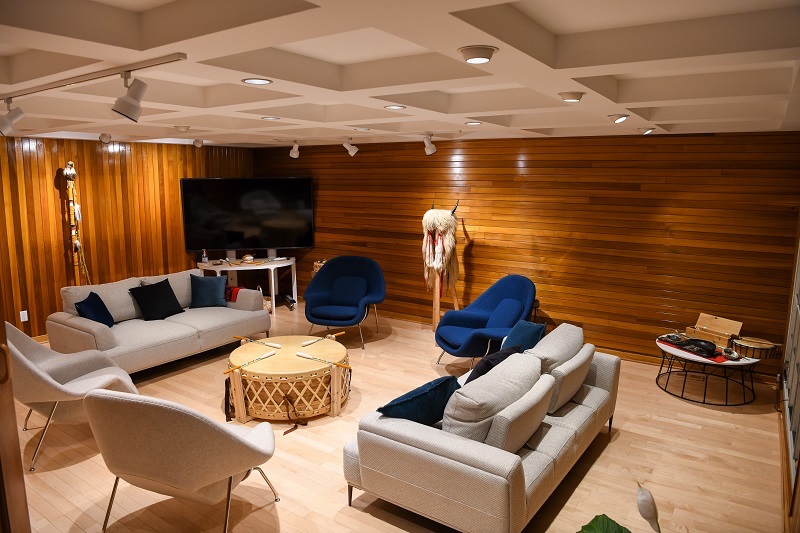As the second anniversary of Canada’s Murdered and Missing Indigenous Women and Girls (MMIWG) report approaches this June, Indigenous leaders say they are disappointed at the federal government’s slow response to the inquiry’s 231 recommendations.
To mark International Women’s Day, the Native Women’s Association of Canada (NWAC) announced an International Summit of the Americas on Violence Against Indigenous Women March 29-30 to confront this ongoing crisis. Themed “Silent No More”, the online event will debate ways to bring perpetrators to justice and to better protect Indigenous women, girls and gender-diverse people.
“Here we are coming close to a second year and we’re not sure that any kind of action plan is anywhere near being finalized,” said NWAC CEO Lynne Groulx. “This is why we’re planning a major event at the end of March, trying to shed some light on what the issues are, why this is taking so long to get action and what can we do.”
The event will include panel discussions and international speakers such as Luis Almagro, Secretary General of the Organization of American States. Expected to draw hundreds of participants from across North and South America, the summit will produce an outcome document that offers an action plan.
“We want to have as many people as possible from the grassroots to provide a voice and forum for women in the Americas to have their voices heard,” Groulx told the Nation. “Our hope is to come to a point where we say this genocide is not acceptable anywhere. This pandemic has exacerbated violence.”
The United Nations has called increasing domestic violence against women over the past year the “shadow pandemic”. Stay-at-home measures have compounded issues like substance abuse and economic instability while isolating victims from support networks and life-saving services.
“Addiction has gone up,” confirmed Jessica Quijano, coordinator for the Iskweu Project at the Native Women’s Shelter of Montreal, whose mandate is to respond to MMIWG issues. “A lot of women who go missing or are murdered are dealing with extreme poverty. They might be dealing with addiction, mental health and trauma. Rehab and detox centres are only half capacity [because of pandemic restrictions]. We had long waiting lists before, now it’s even longer.”
To bypass racism and language barriers, Quijano highlighted the need for culturally appropriate services designed by and for the Indigenous community. She particularly wants to see dedicated health resources and a 24-hour drop-in shelter for Indigenous women.
“The issue is sometimes women don’t go [to shelters] because they might see their aggressor in the space,” Quijano told the Nation. “I see people’s health deteriorating unnecessarily because they just don’t want to go through the system and become more marginalized. They are putting themselves at risk just to survive.”
The Iskweu Project will soon open a drop-in space for Indigenous women who have been sexually assaulted. While Quijano frequently works with police to ensure proper reports and investigations are made, she believes outreach workers are better equipped to intervene in social problems.
“Police aren’t locating Indigenous women and girls so it’s about having more sensitive people who actually care about the community doing that work,” said Quijano. “It’s a system hard to reform and we’ve really tried. It’s not about having the solutions but about having the political will and investing in those services.”
In 2019, Indigenous women were victims of nearly 28% of the homicides perpetrated against women in Canada – though they represented only 4% of all the women in the country. While the need for more accountable policing was one of the inquiry’s calls for justice, the true numbers of murders and disappearances are still unknown, as are the police resources devoted to investigating them.
“We need to know what the real numbers are,” declared Groulx. “One of the highest [calls for justice] on our priority list was helping families reopen some of these cases that were closed to find out what happened to their loved ones. There’s certainly no closure if there’s no body found.”
Quijano believes Joyce Echaquan’s death in a Joliette hospital in September 2020 brought more awareness to what the inquiry called “this Canadian genocide”. But both Quijano and Groulx say recent initiatives are insufficient to address the magnitude of the problem. NWAC has asked Ottawa to immediately create a national task force to review unresolved MMIWG files, develop a national database of cases and to fund its grassroots efforts.
“There needs to be political will from the top to say we’re going to end this in Canada,” asserted Groulx. “We are very concerned this bureaucracy is moving so slowly – it should have been in place when it was promised last year. There’s no reason some of these calls for justice could not be implemented while a larger plan is developed.”
According to the federal government, work is well underway on a National Action Plan to address the calls to justice. A National Family and Survivors Circle is working with several groups to co-develop a plan that is regionally responsive, supports local community solutions and addresses the root causes of violence.
“The plan must be a concrete and accountable document that can be measured against and adjusted if it is to meet the needs of the survivors, families and loved ones, to honour the spirits and memories of those lost, and to protect future generations,” the Office of the Minister of Crown-Indigenous Relations told the Nation.

To support women emotionally traumatized by violence, NWAC recently opened a “resiliency lodge” in Quebec, with plans to expand to every region across Canada. The lodge will promote healing and prevention through ceremony and guidance from Elders.
“We need safe places for women to come for healing,” explained Groulx. “This is definitely part of the solution, but we look forward to sharing ideas and tangible solutions at the international event with other countries dealing with the same issue.”





